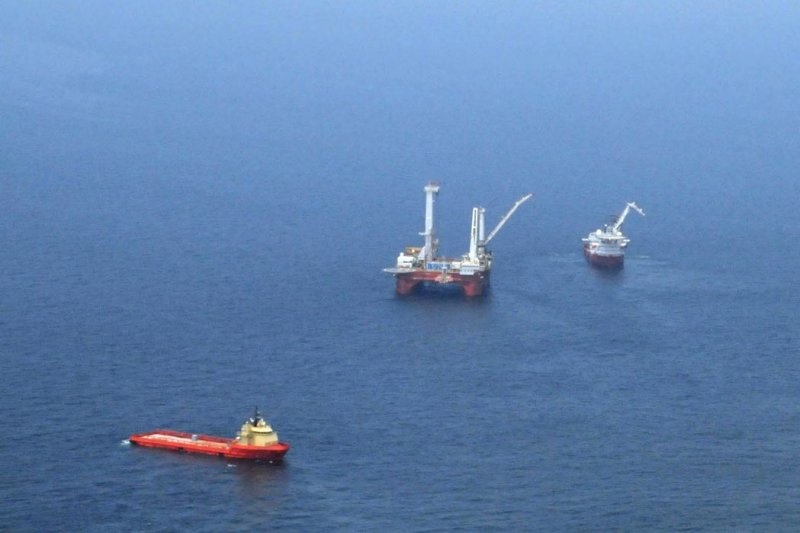Australian energy company BHP Billiton says it's investment more than $2 billion to help advance a project in the deep waters of the U.S. Gulf of Mexico. Photo by Casey J. Ranel/UPI |
License Photo
Feb. 9 (UPI) -- Australian energy giant BHP Billiton said it gave the green light to spending more than $2 billion to help develop the Mad Dog project in the Gulf of Mexico.
The company holds a 23.9 percent stake in a project controlled by British energy company BP, which sanctioned the second phase of the Mad Dog project during the fourth quarter.
In a $2.2 billion investment decision, BHP Billiton said it would help advanced production through a floating production facility and more than a dozen new wells.
Production by 2022 is expected to be around 140,000 gross barrels of crude oil per day, which the Australian company said defends a preferred deep-water investment of this size.
"It offers an attractive investment opportunity for BHP Billiton and aligns with our strategic objective to build our conventional portfolio through the development of large, long-life, high-quality resources," Steve Pastor, the company's president of petroleum operations, said in a statement.
Federal U.S. reports to this point had said gains in total domestic oil production were coming from the Gulf of Mexico as shale basins in the Lower 48 play catch up with the market recovery that's under way.
A report Tuesday from the U.S. Energy Information Administration said oil production from the Gulf of Mexico is expected to average 1.63 million bpd in 2017, a decline of 100,000 bpd from previous forecasts.
Nevertheless, U.S. crude oil production is edging higher and BHP Billiton's investment decision could indicate the potential for supply-side strains if broader macroeconomic conditions hold through the early part of the next decade.















